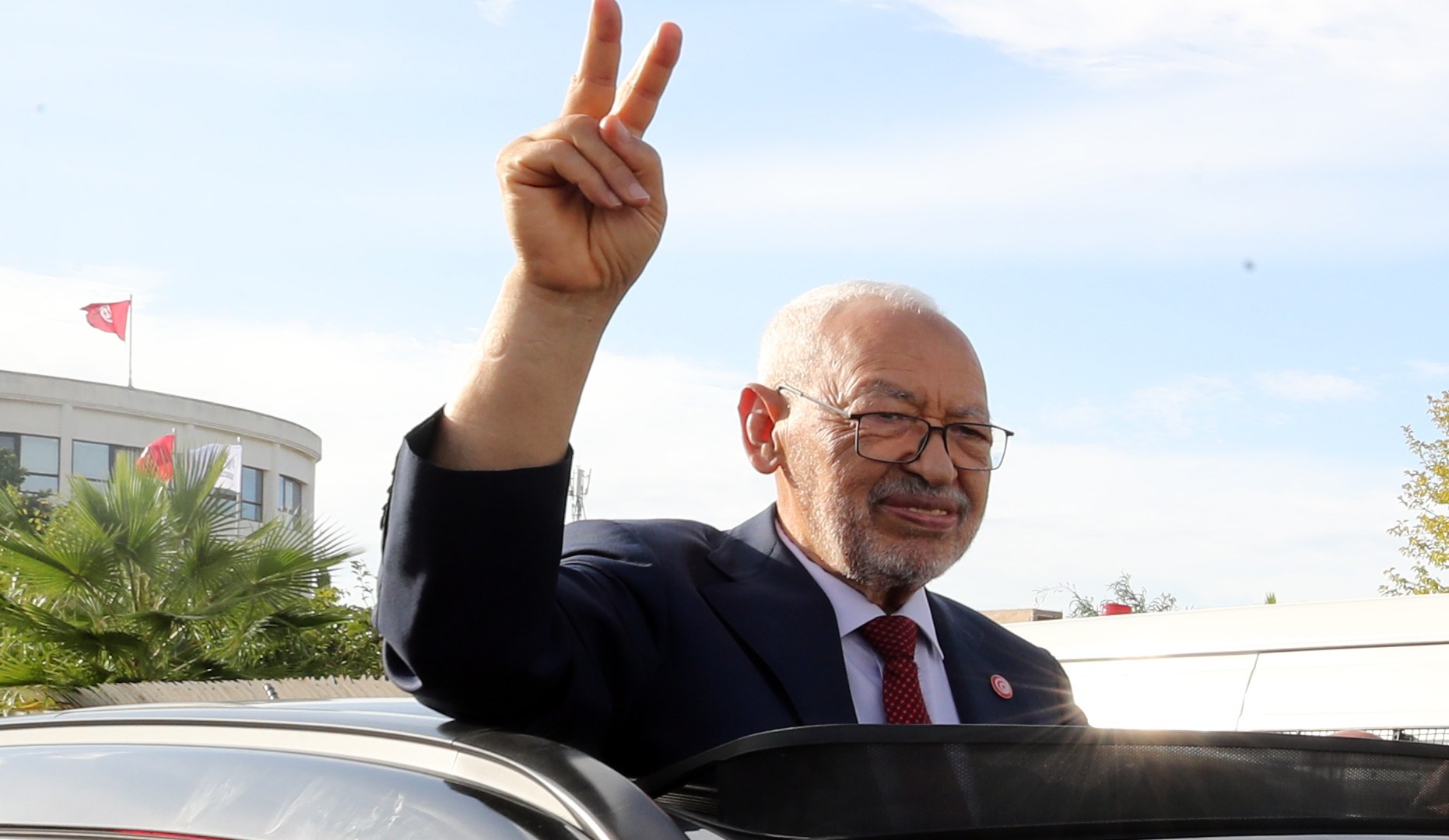Ghannouchi (82 years old) has been in prison since last April (European Republic - Archive)
The head of the Tunisian Ennahdha movement, Rached Ghannouchi, began a hunger strike in his prison today, Monday, in solidarity with other detained major opposition figures who went on a hunger strike to demand their immediate release.
Ghannouchi's defense said - in a statement today - that the detained head of the Ennahda movement "decided to go on a hunger strike from his place of detention in the civil prison in Mornavia, starting today, in solidarity with the detainees on hunger strike and in support of all opponents in various Tunisian prisons and all prisoners of conscience."
The authority added that Ghannouchi "informed his decision to the lawyers members of the defense team today. He called on Tunisians to adhere to a democratic Tunisia that includes all on the basis of coexistence based on freedom, justice, the supremacy of the law, and the independence of the judiciary."
Ghannouchi (82 years old) has been in prison since last April. On February 1, the Tunisian Court of First Instance sentenced him to 3 years in prison on charges that his party received funding from a foreign party.
This is the second ruling issued against Ghannouchi, as on May 15, 2023, he was sentenced to one year in prison and a fine of one thousand Tunisian dinars ($328) on charges of incitement in the case known as the “tyrants file,” when a member of the security unions filed a complaint. Against Ghannouchi, accusing him of describing the security services as tyrants during a speech.
Ghannouchi’s position today comes the day after the coordination of the families of 6 detainees in Tunisia announced, in a statement yesterday, Sunday, that 6 political prisoners detained in the case of conspiring against state security intended to go on an open hunger strike starting today.
The six prisoners said that their strike stems from their refusal to continue the status quo, to protest their imprisonment without trial, and to demand their immediate release and their adherence to their full rights and freedom. They demanded an end to security and judicial prosecutions against all politicians and civil society activists, and to stop intimidating and threatening judges.
The 6 prisoners who went on a hunger strike are: Jawhar Ben Mubarak (member of the National Salvation Front), Issam Chebbi (Secretary General of the Republican Party), Abdelhamid Al-Jalasi (former leader of the Ennahda Movement), Ghazi Chaouachi (former minister), and Khayyam Al-Turki (former leader). In the Ettakatol Party), and Reda Belhaj (former head of the presidential staff).
Tunisian demonstrators during their protest against the policy of President Kais Saied in Tunis, the capital (European Archives)
Accusations
The imprisoned politicians accuse President Kais Saied of carrying out a coup that they say led to the collapse of the democracy built after the 2011 revolution. They have been in prison since last year on charges of conspiring against state security.
In 2021, Saied suspended parliament, dismissed the government, and moved to power by decree before rewriting a new constitution that Tunisians had approved in a referendum with low turnout two years ago, a move the opposition described as a coup against the constitution and a blow to the nascent democracy.
While Saied denied that his actions were a coup, and said that they were necessary to save Tunisia from years of chaos, and described his critics as criminals, traitors, and terrorists, the opposition and human rights groups accuse him of imposing authoritarian rule, imprisoning his major opponents, and seeking to muzzle the press and control the judiciary.
Saeed, who rejects the accusations, said that he will not be a dictator and will continue to cleanse the country of corruption that has spread over the past decade. He also accused politicians of "conspiring against state security" and being behind crises in the distribution of goods and rising prices, while the opposition, in return, accuses him of using the judiciary to prosecute those who object to the exceptional measures he imposed on July 25, 2021.
Source: Agencies

